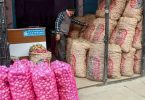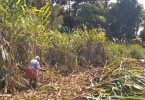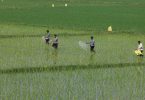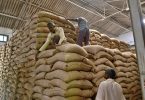[ad_1]
The outbreak of war found British North Borneo ready to play a useful part.
The general response of the community was excellent, and preparations for a possible emergency had earlier been taken in hand.
As a producer of rubber, the State is in a position to be of appreciable service to the Allied war effort, while the expansion of local food production is an important feature of domestic policy.
ADVERTISEMENT
Progress in industry and in the social services has been steadily maintained.
An increase in rubber exports, aided by a more liberal quota, has helped the financial situation. Timber and other industries hold their own.
Fir the first half of 1939 the favourable balance of trade was considerably higher than in the corresponding period in 1938.
The growth of manila hemp exports continues to be a pleasing feature of the State’s economic development.
The crop was under 300,000 lb. in 1933 (the first year of exports other than experimental), while in 1938 it was just below 3,000,000. lb., and the total for 1939 has been estimated at around 5,000,000 lb.
Such growth of subsidiary crops is peculiarly welcome in countries relying largely on one industry, as North Borneo relies on rubber.
Much valuable work has been done since a start was made in separating the Departments of Agriculture and Forestry by giving the joint Director an assistant for each branch.
ADVERTISEMENT
The Agricultural Assistant had early success in demonstrating improved methods of cultivating rice.
The Native Rice Ordinance passed during 1939 gives the Governor authority to declare certain land held under native title to be native rice land.
Such land must be cultivated at le”’ once every calendar year.
In other ways wider use is being mad` of the State’s varied resources, which offer many opportunities.
The State benefited from events in Europe in respect of medical services.
A special Malarial Officer was appointed as a result of an investigation carried out by an expert from East Africa.
The campaign against opium smoking goes forward.
ADVERTISEMENT
New regulations should reduce the quantity smoked by 10 per cent, per annum, so that by 1950 the State ought to be free of the vice.
The drop in rubber prices between 1930 and 1933, followed by restriction in 1934, interfered with the road-making programme which began in 1928.
Demand for land fell away and the same necessity for new roads did not exist.
Nevertheless, the total amount spent on road-building since 1928 has been £212,657, of which £71,373 was covered by a Colonial Development Fund grant.
Other development works have been planned to take the place of the lapsed road programme, of which reclamation at Sandakan is the most important.
[ad_2]
Source link







